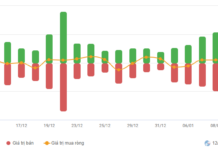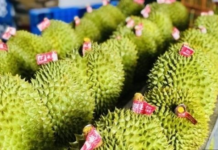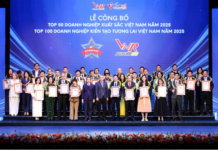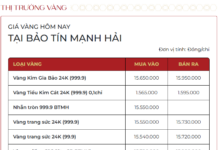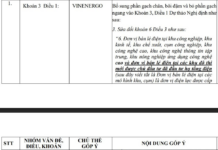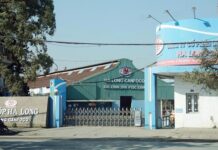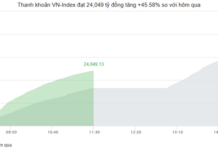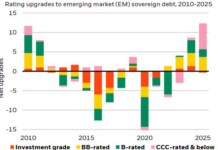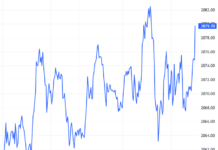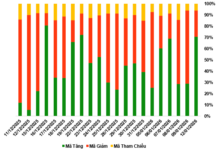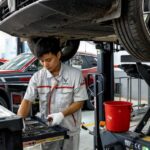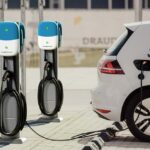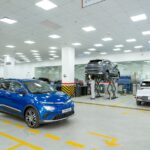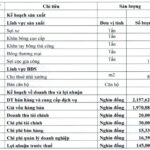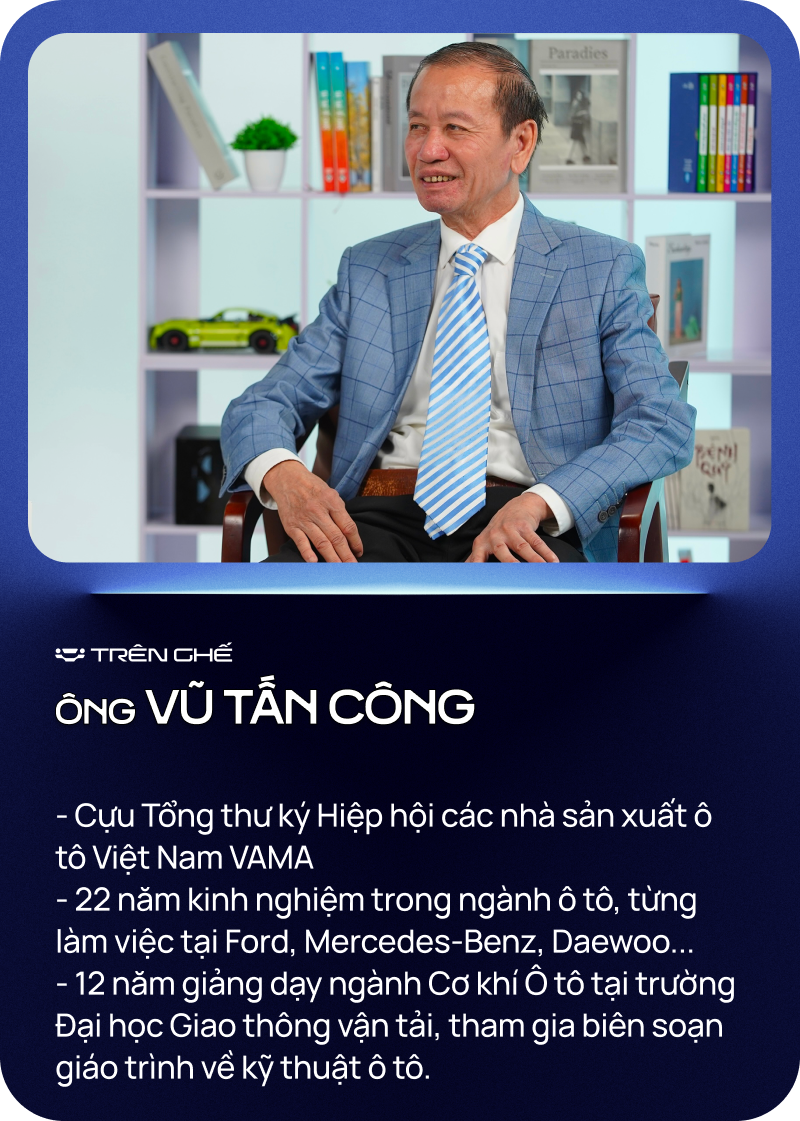
Figure 1: Guest Profile
Below is the conversation between host Đăng Việt and Mr. Vũ Tấn Công, former Secretary-General of the Vietnam Automobile Manufacturers’ Association, on the topic: “Is Lynk & Co on the Right Track in Vietnam?”
Lynk & Co has not pursued electric vehicles despite this being a trend in Vietnam. What are your thoughts on this strategy?
Gas-powered vehicles generally have the advantage of convenient refueling thanks to the widespread availability of gas stations. They are also easier to maintain and repair, as there are many skilled technicians with years of experience. However, a drawback of gas-powered cars is that they have higher usage costs per kilometer and contribute to environmental pollution.
Electric vehicles offer the benefit of being environmentally friendly and having lower usage costs per kilometer compared to gasoline or diesel engines. However, their downside is that they are more expensive to purchase and require a charging infrastructure.
Lynk & Co is a subsidiary of the Geely Group. Currently, the company offers five models, including four traditional gasoline-powered vehicles and one gasoline-electric hybrid.
Considering the above arguments and in line with Decision No. 876/QD-TTg on green energy transition and reducing carbon and methane emissions in the transportation sector, issued by the Prime Minister on July 22, 2022, I believe that Lynk & Co’s decision to sell gasoline-powered vehicles at this time is reasonable.
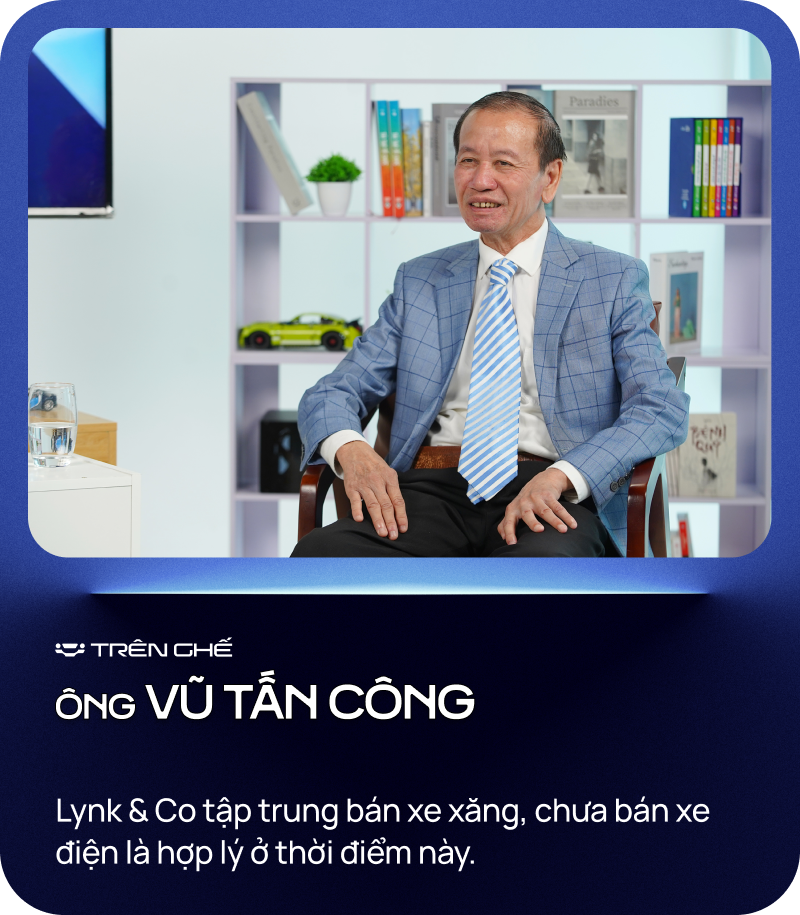
Lynk & Co’s positioning in Vietnam seems similar to that of Volkswagen or Peugeot, aiming for the mass market but below luxury brands. Do you think this is the right approach?
Vietnamese consumers have historically lacked trust in Chinese automotive brands, leading many to associate them with low quality. However, Lynk & Co’s positioning in the mass market, just below luxury brands, is correct. But, the company must take specific and appropriate actions to achieve success.
According to a reliable source, I understand that Lynk & Co is exploring the feasibility of implementing a CKD car assembly plant project in Vietnam. This aligns with my prediction.
For Vietnamese customers, any automotive brand, not just Chinese ones, needs to demonstrate a long-term commitment to gain trust. Therefore, planning to build a CKD assembly plant in Vietnam is a wise and necessary strategy.
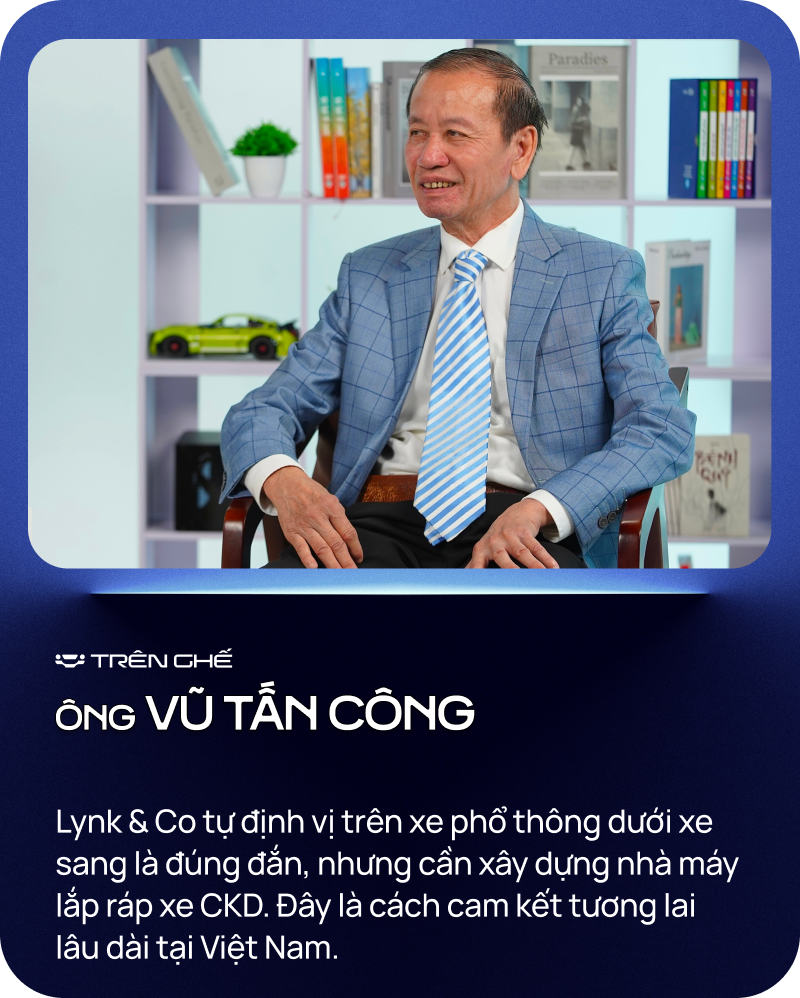
How do you foresee Lynk & Co’s future changing after establishing the CKD plant, Mr. Cong?
There will undoubtedly be significant changes.
When a brand builds an assembly plant in a country, it signifies a long-term commitment to that market. This is not merely a business decision but a strategic one. A car dealership may come and go, but a manufacturing plant represents a more permanent presence.
More importantly, if this plant achieves a 40% localization rate within the ASEAN bloc, Lynk & Co will have a tremendous opportunity to export vehicles to other ASEAN markets. With agreements like ATIGA, RCEP, and CPTPP in place, the company can tap into a vast potential market, which I believe they have already recognized.
The Vietnamese government is very welcoming to foreign investors, especially in the automotive industry. Additionally, there are supportive policies in place, such as a 50% reduction in registration fees for domestically assembled vehicles…
These factors will enable Lynk & Co to thrive and strengthen its position in the market.
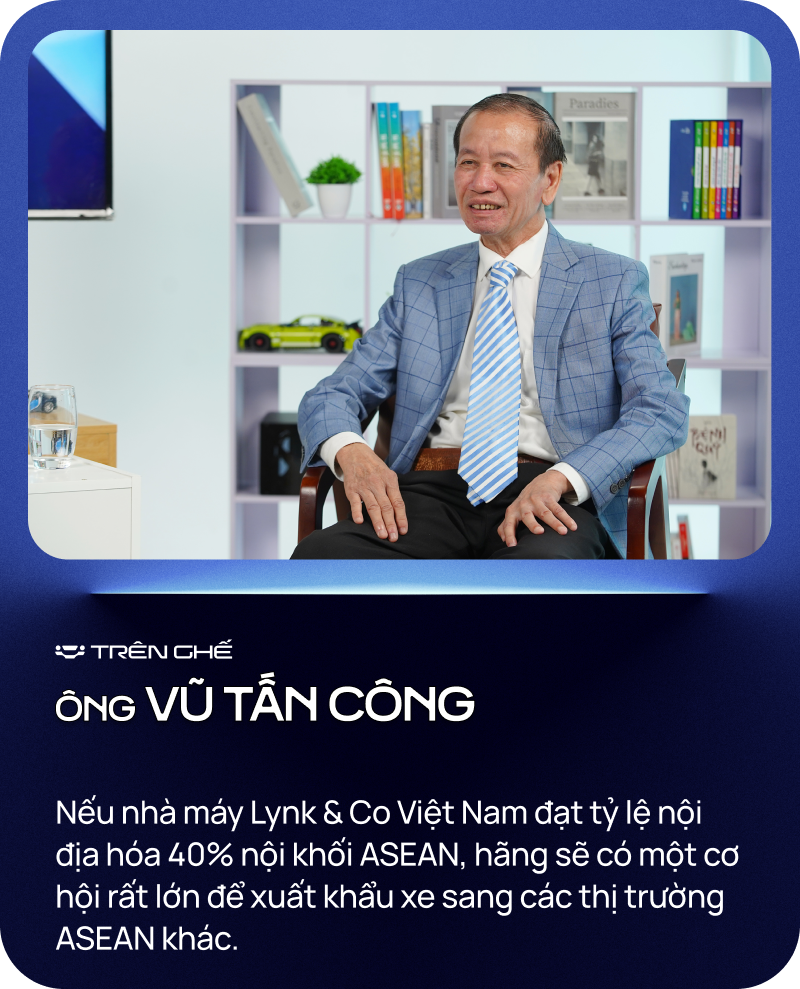
Lynk & Co’s partner in Vietnam, Tasco Auto, has recently acquired the distribution rights for Volvo, another brand under the Geely Group. Some believe that Tasco Auto aims to distribute more brands within the group in the future. What are your thoughts on this?
I have visited the Geely factory and headquarters in Hangzhou, China. It is a very strong private group that produces high-quality vehicles. Tasco Auto has the exclusive distribution rights for Volvo, a prestigious Swedish luxury car brand.
Tasco Auto is a prominent player in the Vietnamese automotive distribution and sales industry. Their partnership with a brand known for its quality, beautiful design, and advanced technology is a wise move.
Additionally, beyond the business aspect, distributing Volvo vehicles helps elevate the Tasco brand itself.
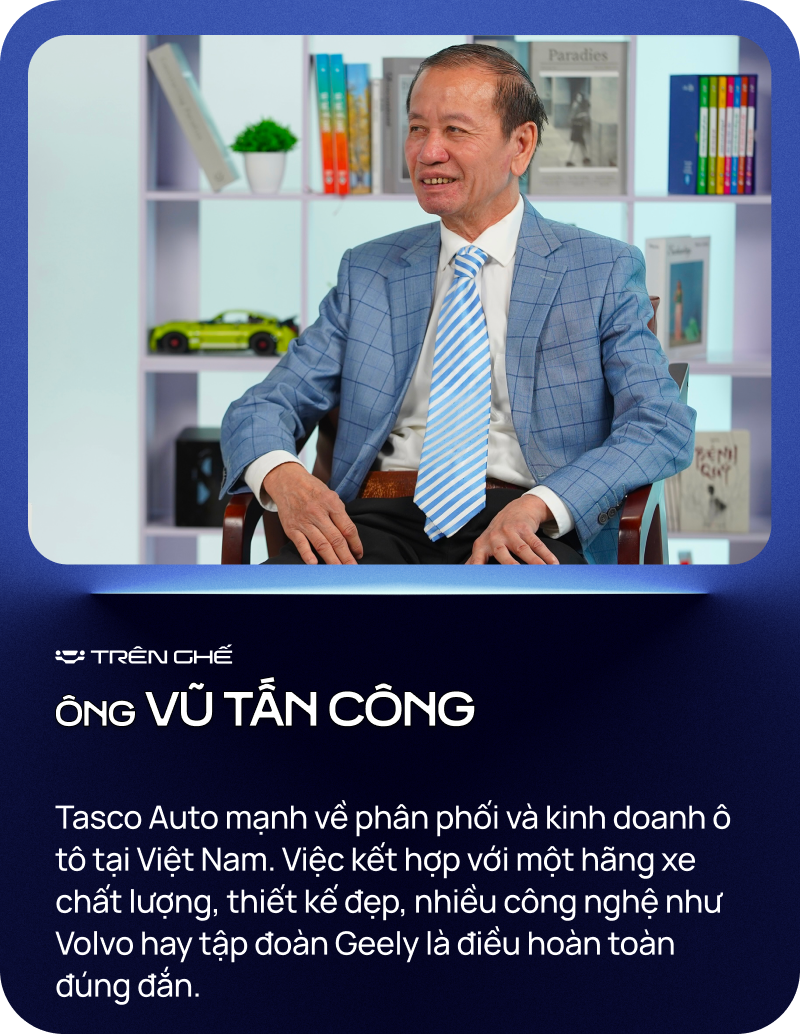
Thank you for your insights, Mr. Cong.
The Trên Ghế program is a collaboration between Ho Chi Minh City Television and VCCorp; implemented in cooperation with AutoPro; commercialized by AdWheel; and accompanied by Giovanni.
The First Country to ‘Shut the Door’ on Gasoline Cars: A Misstep?
Six months after the ban, this is the reality in the world’s first country to prohibit the import of petrol and diesel cars.
The Electric Revolution: Grab’s Surprising Choice for 1,000 New Electric Taxis
Gojek, the rival of Grab, has unveiled an ambitious plan to transition its fleet to electric motorcycles by 2030. This bold move underscores the company’s commitment to sustainability and reducing its environmental footprint. With this initiative, Gojek aims to lead the industry towards a greener and more sustainable future, one that promises a cleaner, quieter, and more efficient ride-sharing experience for both passengers and drivers alike.

